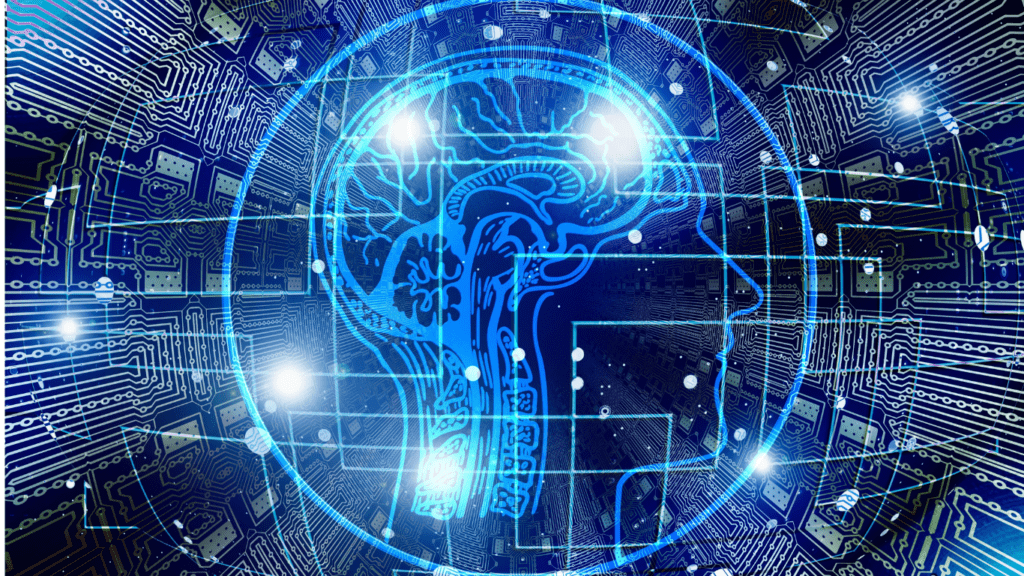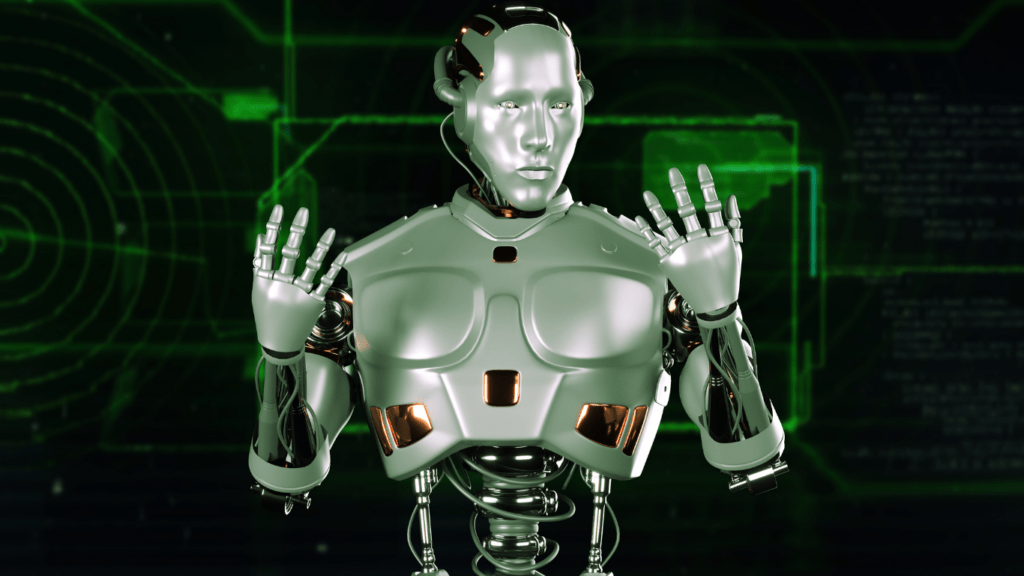Understanding AI in Business Automation
AI automates complex tasks in business processes. It uses machine learning, natural language processing, and robotic process automation to replicate and enhance human abilities. These technologies streamline tasks like:
- data entry
- customer service
- supply chain management
Machine learning enables AI systems to learn from data and improve over time. For example, predictive analytics can forecast demand, allowing businesses to optimize inventory. By analyzing patterns in data, machine learning can identify inefficiencies and suggest optimizations.
Natural language processing (NLP) allows AI to understand and generate human language. Chatbots, for instance, use NLP to interact with customers, answer queries, and provide support. This reduces the need for human intervention in routine customer interactions.
Robotic process automation (RPA) involves using software robots to automate repetitive tasks. These bots can handle data transfers, form submissions, and other manual tasks at high speed and accuracy. RPA minimizes human error and increases productivity by freeing employees from mundane tasks.
Businesses gain significant advantages from AI. Automating processes reduces operational costs and enhances efficiency. AI’s ability to process large datasets quickly leads to better decision-making. Companies leveraging AI can focus on strategic initiatives and innovation, fostering competitive advantage in their industry.
Benefits of AI Integration
Integrating AI into business processes provides numerous advantages. AI drives efficiency, reduces costs, and enhances decision-making.
Increased Efficiency
AI solutions boost efficiency by automating repetitive tasks. For example, robotic process automation (RPA) performs routine data entry, reducing manual effort. Machine learning (ML) algorithms optimize workflows by learning from historical data. Natural language processing (NLP) improves customer service through chatbots, which handle inquiries without human intervention. AI-driven tools streamline operations, allowing employees to focus on strategic activities.
Cost Reduction
AI integration cuts operational costs. Automating tasks decreases labor expenses. Predictive analytics, a facet of ML, helps manage inventory more effectively by forecasting demand patterns, reducing waste. AI-driven maintenance systems predict equipment failures, minimizing downtime and repair costs. Companies save on customer service as chatbots handle high-volume queries efficiently, decreasing the need for large support teams.
Improved Decision Making
AI enhances decision-making processes. With predictive analytics, businesses gain insights from vast datasets, enabling accurate forecasting and strategic planning. AI systems analyze real-time data, providing instantaneous feedback and recommendations, improving response times. NLP-driven sentiment analysis helps companies understand customer feedback, guiding product and service improvements. AI tools support data-driven decisions, increasing competitive advantage in the marketplace.
Key AI Technologies in Business Automation
AI drives business automation by leveraging distinct technologies. I’ll break down three key technologies that play a crucial role in this realm.
Machine Learning
Machine learning enables AI systems to evolve by analyzing data. These systems make predictions and decisions without explicit programming. Businesses use machine learning for predictive analytics (sales forecasting) and anomaly detection (fraud prevention). This adaptive technology keeps improving, leading to more accurate outcomes over time.
Natural Language Processing
Natural language processing (NLP) allows AI to comprehend and respond to human language. This technology powers chatbots, virtual assistants, and sentiment analysis tools. Companies deploy NLP-driven chatbots for customer support, reducing reliance on live agents. Sentiment analysis helps businesses gauge public opinion on products, informing marketing strategies.
Robotic Process Automation
Robotic process automation (RPA) focuses on automating repetitive tasks. RPA software mimics human actions in digital systems, streamlining workflows. Examples include data entry, invoice processing, and employee onboarding. This automation saves time, reduces errors, and allows employees to focus on higher-value tasks.
Real-World Applications of AI in Business Automation

AI is revolutionizing business automation with practical applications across several departments. Key areas include customer service, supply chain management, and human resources.
Customer Service
AI enhances customer service through chatbots and virtual assistants. Chatbots resolve common queries instantly, reducing wait times and improving customer satisfaction. Virtual assistants guide customers through processes, providing personalized experiences. Sentiment analysis tools assess customer feedback, enabling businesses to refine their services. AI-driven solutions thus optimize communication and interaction with clients.
Supply Chain Management
In supply chain management, AI optimizes logistics and inventory management. Predictive analytics anticipate demand fluctuations, helping businesses maintain optimal stock levels. Machine learning algorithms suggest efficient shipping routes, reducing costs and delivery times. AI also identifies potential disruptions early, allowing for proactive risk management. As a result, supply chain operations become more responsive and cost-effective.
Human Resources
AI in human resources streamlines recruitment and employee management. Resume screening tools analyze applications quickly, identifying the best candidates. Predictive analytics forecast employee performance and retention, aiding in workforce planning. AI chatbots handle routine HR inquiries, freeing up human agents for more complex tasks. These applications increase efficiency and improve decision-making in HR departments.
Challenges and Considerations
Implementing AI in business automation presents various challenges, requiring careful attention to ensure success. Addressing data privacy, integrating with legacy systems, and understanding the workforce impact are crucial.
Data Privacy and Security
- Data privacy and security are paramount when deploying AI solutions. AI systems process vast amounts of data, including sensitive customer information.
- Ensuring this data’s safety against breaches and unauthorized access is critical.
- Regulatory compliance, such as GDPR, is mandatory for businesses operating in regions with strict data protection laws.
- Encryption techniques and secure data storage mechanisms are necessary to protect user information.
- Without robust security measures, companies risk data breaches that can damage their reputation and lead to significant financial losses.
Integration with Legacy Systems
Integrating AI with existing legacy systems can be challenging. Many businesses rely on outdated systems that weren’t designed to work with modern AI tools. This disconnect can lead to compatibility issues and inefficiencies. For instance, older CRM systems might not support real-time data processing required by AI algorithms. To overcome this, businesses might invest in middleware solutions that facilitate communication between legacy systems and AI applications. Assessing the current IT infrastructure and planning incremental upgrades can minimize disruptions during the integration process.
Workforce Impact
AI’s role in business automation significantly impacts the workforce. While AI eliminates repetitive tasks, it may also lead to job displacement. Employees might need reskilling to adapt to new roles that require human judgment and creativity. For example, data analysts may transition to roles focusing on interpreting AI-generated insights rather than compiling data manually. Companies should invest in training programs to help staff develop skills necessary for AI-enhanced environments. Addressing workforce concerns proactively ensures smoother transitions and maintains employee morale.
By addressing these challenges, businesses can harness AI’s full potential in automation, driving efficiency and innovation.
Future Trends in AI and Business Automation
AI and business automation are set for transformative advancements. As these technologies evolve, several key trends will shape their future.
Increased Use of AI in Decision-Making
AI will transition from supporting to driving core business decisions. Companies will rely on AI to analyze complex datasets for strategic insights. For example, AI-driven predictive analytics will forecast market trends, helping businesses stay competitive.
Expansion of Autonomous Systems
Autonomous systems will proliferate across industries. Self-driving trucks in logistics and automated production lines in manufacturing will enhance efficiency. These systems will operate with minimal human intervention, reducing labor costs and increasing output.
Enhanced Personalization
AI will drive hyper-personalization in customer interactions. NLP and machine learning algorithms will analyze individual preferences, tailoring marketing and product recommendations. Personalized experiences will boost customer satisfaction and retention.
Advanced Natural Language Processing
NLP advancements will create more intuitive AI interfaces. AI-powered virtual assistants will understand and respond to complex queries with greater accuracy. This will make AI tools more user-friendly and accessible in various business contexts.
Integration with IoT
AI will integrate seamlessly with the Internet of Things (IoT). Smart sensors and connected devices will feed real-time data to AI systems, enabling predictive maintenance and operational efficiencies. For instance, AI can predict equipment failures in manufacturing, reducing downtime.
Ethical AI and Governance
Ethical AI practices will gain importance. Businesses will focus on transparency and accountability in AI deployments. Frameworks and guidelines for ethical AI use will ensure that AI benefits society while minimizing risks associated with bias and privacy concerns.
Increased Focus on Cybersecurity
AI’s role in cybersecurity will grow. AI-driven tools will identify and counteract cyber threats in real-time. Businesses will utilize AI to protect sensitive data, ensuring compliance with regulations and safeguarding customer trust.
AI in Workforce Augmentation
AI will augment human capabilities rather than replace jobs. Businesses will adopt AI to assist employees in their roles. For example, AI can analyze large datasets quickly, enabling data scientists to focus on interpreting results and strategic planning.
AI and Blockchain Integration
AI and blockchain technologies will converge. This integration will enhance data security and transparency in business operations. Blockchain will verify data integrity, while AI analyzes the data for actionable insights.
Continuous Learning Systems
AI systems will adopt continuous learning models. Machine learning algorithms will update and improve in real-time, adapting to new data and evolving business needs. This will lead to more accurate predictions and more responsive AI solutions.
These future trends in AI and business automation promise significant advancements in efficiency, decision-making, and customer satisfaction. By embracing these trends, businesses will remain competitive and continue to innovate.



